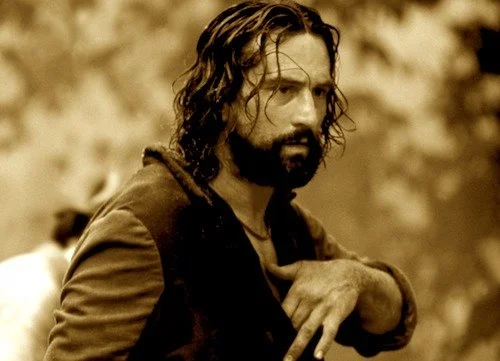The Mission
Written by Andreas Babiolakis
This review is a part of the Palme d’Or Project: a review of every single Palme d’Or winner at Cannes Film Festival. The Mission won the thirty first Palme d’Or at the 1986 festival.
The film was selected by the following jury.
Jury President: Sydney Pollack.
Jury: Alexandre Mnouchkine, Alexandre Trauner, Charles Aznavor, Danièle Thompson, István Szabó, Lino Brocka, Philip French, Sônia Braga, Tonino Delli Colli.
The Palme d'Or has been regarded as one of the more reliable gages of exemplary filmmaking, especially when you compare it to how safe the Academy Awards' Best Picture prize is. However, it's extremely uncommon for the top winner at Cannes to feel as tame as an Oscar winner, especially because of the typically challenging history of the Palme d'Or and its hand picked selections (need I say more than Cannes awarded Titane while the Academy went with CODA?). Uncommon doesn't mean impossible, though, and it's now time to dive into The Mission: an aesthetic marvel that is also quite a chore to watch (a damn shame considering how much of the film feels like it has to be experienced firsthand). This religious retreat feels like an exquisite film, but what actually happens throughout is nearly forgettable: what an unsettling dichotomy between one's heart and their brain. I've seen and ingested The Mission, but I'm extremely foggy as to its particulates. It's both extraordinary and completely pedestrian at the same time. Was that the mission? To pull such a film off?
I can't say that, because clearly Roland Joffé and company tried. You have a stellar duo of Robert De Niro and Jeremy Irons as a slaver and a priest respectively. The Mission showcases changes of heart, as well as the stubbornness of hate, and both De Niro and Irons' sublime performances manage to penetrate the haze of glacial pacing. The real star here is Ennio Morricone (a sheer coincidence that this review drops on the anniversary of his passing: this was not intentional, I swear), with one of his most exquisite scores: the entirety of the film's passion and soul comes from Morricone and his delicately crafted orchestrations. If you try watching The Mission on mute, it loses all of its semblance. You can say that about any film, sure, but it's especially true for The Mission: how often does a score take precedent as the best and sole reason to watch a film with such talent in it? Again, I don't want to be too harsh because The Mission is watchable and I do know that it has its admirers, but I also have to acknowledge its saving graces that render it at least worth a damn.
Oh, how I wish I could love The Mission more than I do.
Again, I'm sad that I feel this way, because there's something vital about what The Mission stands for when it comes to the sustained corruption of colonialism, practitioners of religion that have to answer to those before them (whilst displaying good faith additionally), and how good will triumph evil if only through what we remember (because, let's be honest, evil wins a lot throughout history). The Vatican has spotlighted this film, and I'm not bringing this up in jest: The Vatican has showcased some great selections of films over the years. I'd like to think its because of the martyrdom at the heart of The Mission, even though I personally don't feel like the scale of its events are quite felt as much as they needed to be. There are elements that pull their weight like the music, the acting, and the cinematography, but The Mission's pacing and distancing from us viewers soften any blows it should have (particularly for a film that's got something to say). I loved the first impressions of The Mission, but I don't feel like I really got to know it.
Andreas Babiolakis has a Masters degree in Film and Photography Preservation and Collections Management from Toronto Metropolitan University, as well as a Bachelors degree in Cinema Studies from York University. His favourite times of year are the Criterion Collection flash sales and the annual Toronto International Film Festival.






